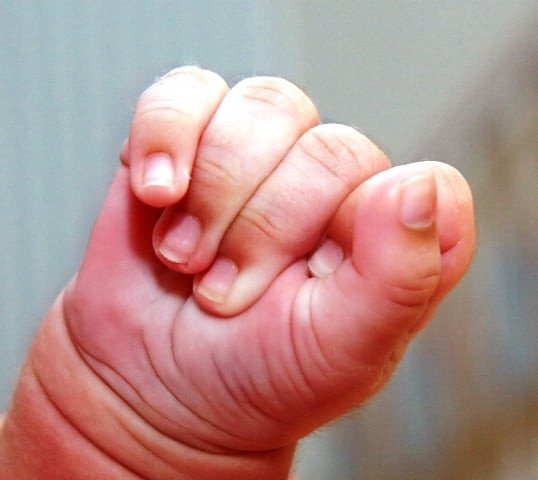‘No woman should die during childbirth even if she gives birth in a tent’
The reason why women die is because the family heads take a long time to decide where to seek help.

"Women who go to the bathroom more than once during the night to go see a doctor," AKU assistant professor Dr Raheela Mohsin Rizvi. PHOTO: FILE
No woman should die during childbirth, even if she has a baby in a tent with no medical facilities, said experts at a seminar on Thursday.
The three main causes of maternal death - severe bleeding after delivery, infection and eclampsia - are preventable, said consultant obstetric and gynaecologist at Aga Khan University (AKU) Dr Lumaan Sheikh. She was speaking at a seminar held at AKU on Thursday to celebrate Mother's Day.
Every day almost 800 women die during pregnancy or childbirth around the world, he shared, adding that, in 2013, 289,000 women died in under-developed countries in Asia and Africa. Forty-two per cent women experience complications during pregnancy while 15 per cent women face complications that could be life-threatening, Dr Sheikh said.
Around 25 per cent deaths occurred during pregnancy and another 25 per cent deaths occurred during childbirth or during the following 24 hours, Dr Sheikh told the audience, pointing out that 50 per cent of the deaths occur after delivery any time during the first year.
According to Dr Sheikh, maternal deaths are higher because of substandard care, poverty, low status of women, restricted choices and inadequate reproductive healthcare. But the reason why women die is because the family heads take a long time to decide where to seek help. The people living in rural areas have no transport facilities so it is often too late when they arrive at a medical facility, she added. Given these problems, she said, it is still possible to save these lives as the treatment of all pregnancy-related problems are available.
The head of the obstetrics and gynaecology department at AKU, Dr Farhat Qureshi, said that around 60 per cent of the people in Pakistan, particularly women, are anaemic, which means there is a deficiency of blood and iron in the body. She advised women to eat more meat and green vegetables, and avoid junk food.
In her presentation, assistant professor at AKU, Dr Raheela Mohsin Rizvi, explained that pelvic floor disorders occur only in women and are caused by weakness of the ligaments, connective tissues and muscles of the pelvis. "One in 11 women need surgery for pelvic floor disorders and the problem becomes more common as women age," she said. She assured that 90 per cent cases can easily be treated without surgery.
Dr Rizvi also warned women who go to the bathroom more than once during the night to go see a doctor. "Three in 10 women are affected by urinary incontinence in the world," she said. She advised women to drink water only when they are thirsty, pass urine four to six times in a day and just once at night. She also urged women to treat coughs, avoid constipation, reduce weight and never go to the toilet just in case.
Dr Aliya Begum Aziz, an assistant professor at AKU discussed menopause and assured that it is a natural phenomenon and a new beginning in a woman's life. It could occur between 40 and 56 years but the symptoms may start appearing two to eight years earlier. "Eighty-five per cent women face hot flushes and sweating at night but it's manageable," she said. "Some women get depressed during menopause but women should enjoy this time too as it's an opportunity to pay attention to their health."
After menopause starts, all women should seek their doctors' advice to protect their heart, said Dr Aziz. They should go for a walk, quit smoking, eat plant-based foods, and use stress management techniques, she advised. "Lifestyle is the key to success."
Published in The Express Tribune, May 10th, 2014.



















COMMENTS
Comments are moderated and generally will be posted if they are on-topic and not abusive.
For more information, please see our Comments FAQ